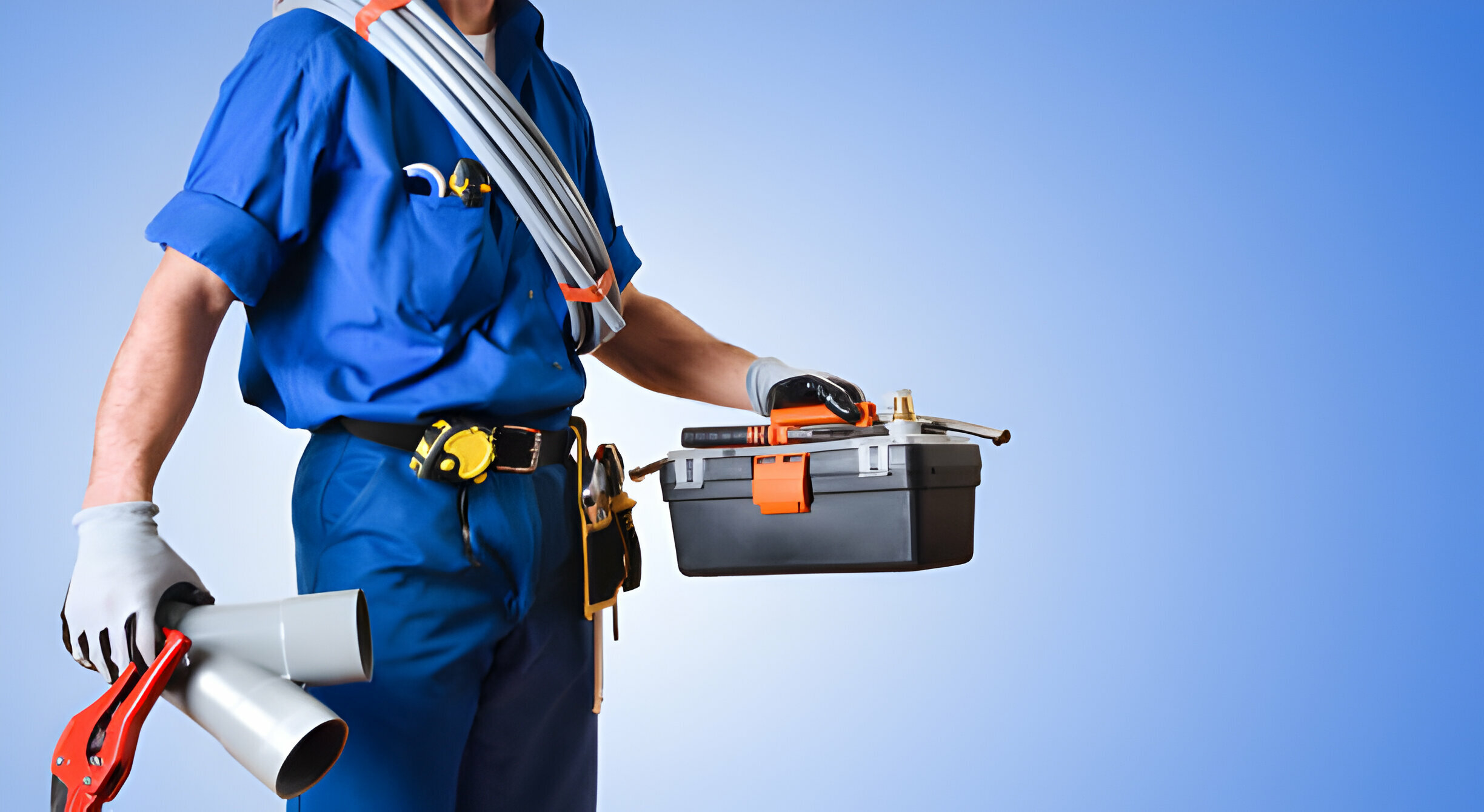I. Introduction
Definition of “Plambers”
The term “plambers” is a fusion of “plumbing” and “handymen,” representing professionals with an expansive skill set beyond traditional plumbing. This unique blend allows them to tackle a broader range of tasks in the construction and home improvement domains.
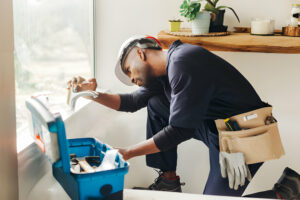
Origin and Evolution of the Term
The term “plambers” has evolved over time, reflecting the changing landscape of the plumbing industry. It signifies a departure from the singular focus on plumbing tasks to a more versatile approach that aligns with the demands of modern construction and homeowners seeking comprehensive solutions.
Significance in the Plumbing Industry
Plamber play a crucial role in bridging the gap between traditional plumbing and the diverse needs of contemporary projects. Their ability to navigate both realms positions them as valuable assets in an industry that increasingly values adaptability and multifunctional expertise.
II. The Dual Nature of Plambers
Plumbing Professionals vs. Hybrid Plambers
While plumbing professionals excel in traditional tasks like pipe installation and repair, hybrid plamber extend their capabilities to encompass a broader spectrum of skills. These may include carpentry, electrical work, and even aspects of interior design.
Skillset and Expertise Differentiation
Plamber possess a unique skill set that sets them apart from traditional plumbers. In addition to mastering the intricacies of plumbing systems, they acquire proficiency in related areas, enabling them to undertake complex projects that require a multifaceted approach.
Rising Demand for Versatile Professionals
The evolving nature of construction projects and home improvement has led to an increased demand for versatile professionals. Plambers, with their ability to seamlessly integrate plumbing with other essential skills, are becoming sought-after contributors to diverse projects.
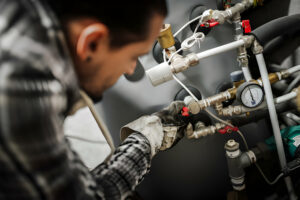
III. Plambers: The Jack of All Trades
Plumbing Skills Overview
At the core of a plamber expertise lies a comprehensive understanding of plumbing fundamentals. This includes knowledge of pipe systems, drainage, and water supply, ensuring a solid foundation for tackling various challenges.
Additional Skills Acquired by Plambers
In addition to plumbing-specific skills, plambers delve into carpentry, electrical work, and basic construction techniques. This multifaceted approach allows them to take on projects that require a holistic understanding of building systems.
Advantages of Being a Versatile Professional
The versatility of plambers positions them as valuable assets in construction and home improvement projects. Their ability to seamlessly transition between plumbing tasks and broader responsibilities adds efficiency and convenience to project management.
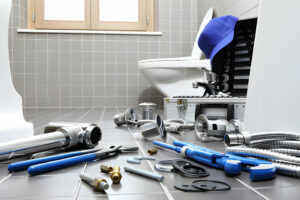
IV. The Educational Journey of a Plamber
Traditional Plumbing Education
Plambers typically begin their journey with traditional plumbing education, laying the groundwork for understanding plumbing systems and fixtures. This foundational knowledge forms the basis for their later integration of additional skills.
Integration of Diverse Skills
As plamber progress in their careers, they actively seek opportunities to expand their skill set. This may involve pursuing supplementary courses in carpentry, electrical work, or gaining hands-on experience in related fields to enhance their overall proficiency.
Emerging Training Programs for Plambers
Recognizing the demand for versatile professionals, training programs tailored for plamber are emerging. These programs aim to provide a holistic education, combining traditional plumbing knowledge with a diverse skill set to meet the evolving needs of the industry.
V. Tools of the Trade for Plambers
Plumbing Essentials
Plamber rely on a standard set of plumbing tools, including pipe wrenches, plungers, and pipe cutters, to address typical plumbing issues. These tools form the foundation of their plumbing toolkit, ensuring they can handle common tasks efficiently.
Specialized Tools for Hybrid Tasks
In addition to standard plumbing tools, plambers incorporate specialized tools related to their additional skills. This may include saws, drills, and electrical testing equipment, allowing them to tackle a broader range of tasks with precision.
Technological Advancements in Plumbing Tools
The plumbing industry is witnessing technological advancements in tools, and plamber are quick to adopt these innovations. Smart leak detectors, digital pipe inspection cameras, and automated pipe-cutting tools enhance their efficiency and contribute to more accurate problem diagnosis.
VI. Challenges Faced by Plamber
Balancing Multiple Skill Sets
One of the primary challenges for plamber is finding a balance between their diverse skill sets. Juggling plumbing tasks with carpentry or electrical work requires careful time management and a deep understanding of project requirements.
Keeping Up with Evolving Technologies
The rapid evolution of technology in both plumbing and related fields poses a constant challenge for plamber. Staying updated on the latest tools and techniques is essential to ensure they can deliver high-quality results in an ever-changing landscape.
Meeting Industry Standards and Certifications
As versatile professionals, plambers must navigate a complex web of industry standards and certifications. Ensuring compliance with regulations in plumbing, electrical work, and other areas is crucial to maintaining professional integrity and safeguarding client interests.
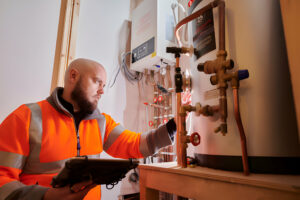
VII. The Rise of Plamber in Modern Construction
Plambers in Residential Projects
In residential construction, plambers are increasingly valued for their ability to contribute to multiple facets of a project. From installing plumbing systems to handling minor carpentry tasks, they streamline project workflows and enhance overall efficiency.
Contributions to Commercial and Industrial Construction
In commercial and industrial settings, plamber plays a vital role in ensuring the seamless integration of plumbing systems with broader construction requirements. Their versatility makes them valuable assets in complex, large-scale projects.
Collaborations with Architects and Engineers
Plambers collaborate closely with architects and engineers to bring a comprehensive perspective to construction projects. Their input during the planning phase ensures that plumbing considerations align seamlessly with the overall design and functionality of a structure.
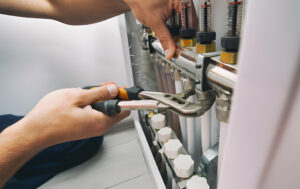
VIII. Case Studies: Successful Plambers in Action
Highlighting Notable Plamber
Explore the journeys of successful plamber who have made a significant impact in their field. From overcoming challenges to achieving milestones, these case studies provide valuable insights into the possibilities within the plamber profession.
Their Journey and Achievements
Dive into the experiences of featured plamber, detailing their educational background, skill development, and noteworthy projects. Understanding the paths they’ve taken can inspire aspiring plamber and shed light on potential career trajectories.
Lessons Learned from Their Experiences
Extract valuable lessons from the experiences of successful plamber. Whether it’s managing diverse projects or navigating industry challenges, these insights can guide both emerging and seasoned professionals toward continued success.
IX. The Art of Balancing Traditional and Modern Plumbing
Incorporating Traditional Techniques
While embracing modern advancements, plamber recognizes the enduring value of traditional plumbing techniques. The ability to merge time-tested methods with contemporary innovations allows them to offer comprehensive solutions to clients.
Embracing Modern Technologies
Plamber actively incorporate modern technologies into their work, leveraging digital tools for diagnostics, project management, and communication. This tech-savvy approach enhances their efficiency and ensures they stay ahead in a rapidly evolving industry.
Achieving a Harmonious Balance for Efficient Plumbing
The art of balancing traditional and modern plumbing lies in understanding when to apply each approach. Plambers navigate this delicate balance with finesse, tailoring their methods to suit the specific requirements of each project.
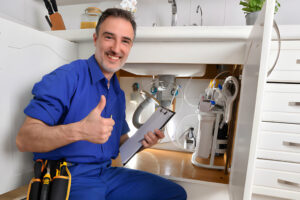
X. Future Trends in Plamber Profession
Predictions for the Evolving Role of Plambers
As technology continues to shape the construction industry, the role of plamber is expected to evolve. Anticipated trends include increased integration of smart technologies, expanded training programs, and a growing demand for versatile professionals.
Technology’s Impact on the Profession
Smart plumbing solutions, IoT integration, and automation are poised to become integral components of the plamber toolkit. Adapting to these technological shifts will be essential for staying relevant in a dynamic and competitive field.
Anticipated Changes in Training and Education
With the demand for plambers on the rise, training and education programs are likely to evolve. Expectations for a more comprehensive curriculum, incorporating both plumbing and additional skills, will become the norm to meet industry demands.
XI. Common Misconceptions About Plambers
Addressing Stereotypes
Dispelling common stereotypes associated with plamber is crucial for fostering a better understanding of their profession. Addressing misconceptions opens the door to appreciation for the diverse skills and contributions they bring to the table.
Clarifying the Scope of Plambers’ Expertise
Contrary to popular belief, plambers are not merely jacks of all trades and masters of none. They possess in-depth expertise in plumbing while complementing their skills with additional proficiencies, making them highly capable professionals.
Dissecting Myths Surrounding the Profession
Unraveling myths about plambers, such as the perception that they lack specialization, highlights the value of their unique skill set. By understanding the truth behind these misconceptions, clients and industry peers can better appreciate the versatility plambers bring to the table.
XII. Plambers in DIY Home Improvement
Guiding Homeowners in Plumbing Tasks
Plambers extend their expertise to homeowners embarking on DIY plumbing projects. Offering guidance on tasks like minor repairs, fixture installations, and troubleshooting empowers individuals to take a hands-on approach to home improvement.
Providing Resources for DIY Enthusiasts
Plambers curate resources for DIY enthusiasts, including tutorials, tool recommendations, and safety guidelines. This collaborative approach encourages a sense of community and fosters a DIY culture while ensuring individuals undertake tasks with the necessary knowledge.
Ensuring Safety and Adherence to Regulations
While supporting DIY initiatives, plambers emphasize the importance of safety and adherence to regulations. Their guidance ensures that DIY enthusiasts approach projects with a comprehensive understanding of potential risks and necessary precautions.

XIII. The Economic Impact of Plamber
Contribution to the Plumbing Industry Revenue
Plambers play a significant role in driving revenue within the plumbing industry. Their ability to take on diverse tasks and contribute to various aspects of construction and home improvement projects enhances overall economic growth within the sector.
Job Market Trends for Plamber
The job market for plamber is thriving, with increasing demand for their unique skill set. As the construction industry continues to evolve, the employment landscape for plamber remains robust, offering numerous opportunities for both seasoned professionals and newcomers.
Economic Benefits of Hiring Plamber for Diverse Projects
Contracting plamber for projects brings economic benefits, including streamlined workflows, reduced project timelines, and cost-effective solutions. Their ability to address plumbing and related tasks minimizes the need for multiple specialized professionals, resulting in overall project savings.
XIV. Ethical Considerations in the Plambers Profession
Ensuring Transparency with Clients
Ethical considerations are paramount in the profession. Plamber prioritize transparency with clients, providing clear communication on project scopes, costs, and potential challenges. This commitment to honesty fosters trust and long-lasting client relationships.
Upholding Professional Standards
Plamber adhere to high professional standards, ensuring that their work meets or exceeds industry regulations. Upholding these standards not only safeguards the reputation of individual plamber but contributes to the overall integrity of the plumbing profession.
Addressing Potential Conflicts of Interest
Navigating potential conflicts of interest is a key ethical consideration for plambers. By transparently managing situations where personal interests may intersect with professional responsibilities, plambers maintain the trust of clients and stakeholders.

XV. How to Become a Plamber: Step-by-Step Guide
Educational Prerequisites
Individuals aspiring to become plambers typically start with a foundation in traditional plumbing education. Completing a plumbing apprenticeship or formal education in plumbing sets the stage for the integration of additional skills.
Acquiring Additional Skills
To become a plamber, individuals actively seek opportunities to acquire additional skills beyond plumbing. This may involve enrolling in courses for carpentry, electrical work, or gaining hands-on experience through apprenticeships to broaden their expertise.
Navigating the Job Market as a Plamber
Once equipped with a diverse skill set, aspiring plamber navigate the job market by seeking positions that align with their multifaceted capabilities. Networking, showcasing their varied skills, and staying updated on industry trends contribute to a successful entry into the plamber profession.
XVI. Plambers’ Role in Environmental Sustainability
Implementing Eco-Friendly Plumbing Practices
Plambers actively contribute to environmental sustainability by implementing eco-friendly plumbing practices. This includes promoting water conservation, recommending energy-efficient fixtures, and minimizing the environmental impact of plumbing projects.
Use of Sustainable Materials
Incorporating sustainable materials in plumbing projects is a hallmark of plambers committed to environmental responsibility. From pipes made of recycled materials to eco-friendly insulation choices, their choices align with the broader goal of reducing the ecological footprint of construction projects.
Contributing to Water Conservation Efforts
Water conservation is a key focus for plambers involved in residential and commercial projects. By recommending and implementing water-saving fixtures, efficient irrigation systems, and leak detection technologies, plambers actively contribute to global water conservation efforts.
XVII. Industry Collaboration: Architects, Engineers, and Plambers
Building Effective Partnerships
Collaboration between plambers, architects, and engineers is essential for successful construction projects. Building effective partnerships involves open communication, mutual respect for each profession’s expertise, and a shared commitment to delivering high-quality results.
Collaborative Projects and Success Stories
Explore collaborative projects where plambers have worked seamlessly with architects and engineers. These success stories highlight the benefits of interdisciplinary collaboration, showcasing how diverse expertise enhances the overall outcome of construction endeavors.
Mutual Benefits of Interdisciplinary Collaboration
The collaboration between plambers, architects, and engineers results in mutual benefits. Plambers contribute their specialized knowledge of plumbing systems, architects provide design insights, and engineers bring structural expertise, creating a holistic approach to construction projects.
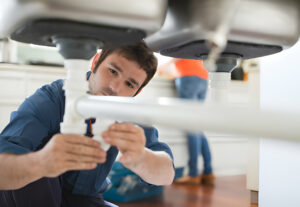
XVIII. Plambers’ Code of Ethics
Professional Conduct Guidelines
Plambers adhere to a code of ethics that outlines professional conduct guidelines. These guidelines encompass honesty, integrity, and a commitment to delivering quality work. Following these ethical principles ensures the trust and satisfaction of clients.
Resolving Ethical Dilemmas
In the course of their work, plamber may encounter ethical dilemmas. The ability to navigate these situations with integrity, seeking solutions that prioritize client interests and uphold professional standards, is a testament to the ethical foundation of the profession.
Upholding the Integrity of the Plambers Profession
Upholding the integrity of the professional profession is a collective responsibility. Plambers, as ethical professionals, contribute to the positive reputation of the industry by consistently delivering on their promises and maintaining the highest standards of conduct.
XIX. The Impact of Technology on Plambers’ Roles
Smart Plumbing Solutions
The integration of smart plumbing solutions enhances the capabilities of plambers. From automated leak detection systems to smart thermostats and remote monitoring, technology augments their ability to provide efficient, tech-savvy solutions.
Integration of IoT in Plumbing
The Internet of Things (IoT) is revolutionizing the plumbing industry, and plamber are at the forefront of this transformation. IoT devices, such as smart faucets and water quality sensors, allow plamber to offer cutting-edge, data-driven solutions to clients.
Technological Challenges and Opportunities for Plambers
While technology presents numerous opportunities, participants also face challenges in adapting to rapidly evolving tools and systems. Staying informed, embracing ongoing training, and leveraging technology to their advantage enable plamber to overcome these challenges and remain leaders in their field.
Conclusion
Summarizing the Evolving Role of Plambers in Conclusion, the term “plambers” encapsulates a breed of professionals who seamlessly blend traditional plumbing expertise with a versatile skill set. Their evolving role in modern construction, DIY home improvement, and commitment to ethical standards positions them as indispensable contributors to the construction industry. acknowledging the importance of their multifaceted expertise, the importance of plambers’ multifaceted expertise cannot be overstated. As the construction landscape continues to evolve, plumbers stand as agile professionals capable of navigating diverse projects with finesse, offering comprehensive solutions that meet the demands of a dynamic industry. Encouraging Future Professionals to Embrace the Plambers Journey For aspiring professionals, the Plambers Journey offers a unique and rewarding path. Embrace the opportunity to master traditional plumbing skills while cultivating additional proficiencies. The ability to navigate both worlds serves as a catalyst for positive change in the construction and home improvement sectors.
